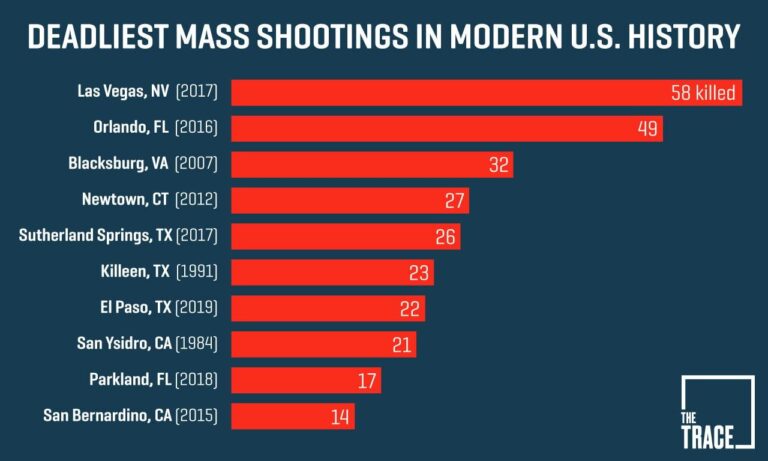Former President Barack Obama issued a stark warning against societal desensitization to mass shootings in the United States, emphasizing the urgent need for collective action. Speaking out in response to the latest surge of gun violence, Obama cautioned that the nation cannot afford to “become numb” to these tragic events that continue to claim innocent lives. His remarks come amid ongoing debates over gun control measures and the persistent challenge of addressing the root causes of mass shootings.
U.S. Must Confront the Harsh Reality of Mass Shootings Obama Urges
Former President Barack Obama emphasized the urgent need for Americans to break free from the desensitization to mass shootings, calling for substantial policy shifts and community engagement. He highlighted that complacency is no longer an option amid the continuous tragedies affecting schools, places of worship, and public spaces across the nation. Obama stressed that confronting the reality of gun violence requires a collective effort that includes lawmakers, activists, and citizens to push for meaningful reforms on gun control measures.
In addition to advocating for stricter background checks and limits on high-capacity magazines, Obama pointed out the importance of addressing the root causes of violence through education and mental health support. He urged the public to remain vigilant and proactive by:
- Engaging in informed discussions rather than accepting violence as an inevitable tragedy.
- Supporting legislative changes that enhance safety without infringing on responsible gun ownership.
- Building community resilience through programs aimed at preventing violence before it escalates.
| Key Focus Areas | Proposed Measures |
|---|---|
| Gun Control | Universal background checks, ban on assault weapons |
| Mental Health | Increased funding for counseling & crisis intervention |
| Community Engagement | Violence prevention programs & educational initiatives |
The Psychological Toll of Mass Shootings and the Danger of Desensitization
In the wake of recurring tragic mass shootings across the nation, communities grapple not only with loss but with a profound psychological impact that reverberates far beyond the immediate victims. The relentless exposure to such violence escalates anxiety, fear, and grief among individuals, leading to widespread emotional exhaustion. Mental health professionals warn that continuing to witness these horrors without meaningful interventions fosters a climate of chronic stress and trauma, particularly among vulnerable groups like children and survivors.
Equally alarming is the growing risk of societal desensitization. When mass shootings become headline news so frequently that they begin to fade into the background noise, public outrage and demand for change tend to wane. This dangerous numbness threatens to dilute the urgency of addressing root causes and implementing effective policies. Key psychological effects include:
- Emotional disengagement: Reduced empathy towards victims and normalized acceptance of violence.
- Apathy in civic response: Decreased activism and diminished public pressure for reform.
- Impaired collective memory: Short-term outrage without sustained commitment to prevention.
| Psychological Impact | Short-term Effects | Long-term Consequences |
|---|---|---|
| Trauma Exposure | Heightened stress and anxiety | PTSD and depression in affected communities |
| Desensitization | Lower emotional response | Decreased public urgency to act |
| Social Disconnection | Isolation and fear | Weakened community resilience |
Policy Recommendations to Address Gun Violence and Enhance Public Safety
Addressing the persistent crisis of gun violence requires a multifaceted approach rooted in both legislative action and community engagement. Key policy measures include:
- Comprehensive background checks: Closing loopholes to ensure all firearm purchases undergo rigorous screening.
- Red flag laws: Empowering authorities to temporarily restrict access to guns for individuals deemed a threat to themselves or others.
- Investments in mental health resources: Expanding access to counseling and intervention services to preempt potential violent incidents.
- Stricter regulation on assault weapons: Limiting the availability of high-capacity firearms frequently used in mass shootings.
Alongside policy reforms, enhancing public safety also depends on data-driven strategies and community partnerships. Implementing advanced firearm tracking technology and fostering local outreach programs can reduce gun-related crimes. Below is a snapshot of proposed policy impacts based on recent studies:
| Policy | Projected Impact | Timeline for Effect |
|---|---|---|
| Universal Background Checks | 30% reduction in gun violence | 1-3 years |
| Red Flag Laws | 22% decrease in firearm suicides | 6 months – 2 years |
| Assault Weapon Ban | 15% drop in mass shooting incidents | 2-5 years |
Community Engagement and Mental Health Resources as Crucial Components in Prevention
Addressing the root causes of gun violence requires more than legislative action; it demands a collective effort to strengthen community bonds and expand mental health resources. Experts emphasize that proactive engagement within neighborhoods can serve as a frontline defense in identifying and supporting individuals at risk. Initiatives such as neighborhood watch programs, youth mentorship, and community counseling centers have demonstrated success in fostering environments where early signs of distress do not go unnoticed.
Moreover, mental health services must transition from reactive to preventative approaches. Accessibility and destigmatization are key components in ensuring these resources reach those in need. Schools, workplaces, and faith-based organizations can act as vital touchpoints, integrating education and support systems. The table below highlights key elements that community programs and mental health services should prioritize to create holistic prevention strategies:
| Key Component | Impact on Prevention | Example Programs |
|---|---|---|
| Early Identification | Detect warning signs before escalation | School threat assessment teams |
| Community Support Networks | Enhances social cohesion and trust | Neighborhood block parties, peer mentoring |
| Accessible Mental Health Resources | Removes barriers to treatment | Community clinics, teletherapy services |
The Conclusion
As the nation continues to grapple with the devastating frequency of mass shootings, former President Barack Obama’s call to resist becoming numb serves as a stark reminder of the ongoing challenges America faces. His plea underscores the urgency for meaningful dialogue and action to address gun violence. As communities mourn and policymakers debate, the imperative remains clear: to confront the crisis without resignation, striving for solutions that can prevent future tragedies.




